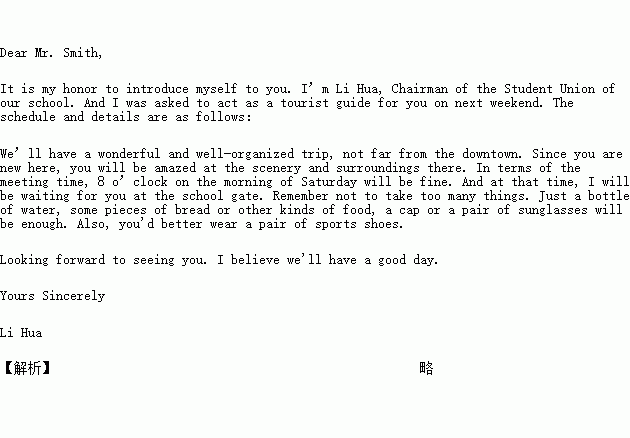��Ŀ����
����Դ������ǿУ���������������ھ���ѧ���������θ߿�ģ��Ӣ���Ծ�����������
��������Уѧ������ϯ���ѧУ����������ĩ��Ϊ���δ����⼮��ʦMr.Smith����һ�ν����Ρ�������Ӣ���Mr.Smithдһ������ʼ��������������ݣ�
1�����ҽ��ܣ�
2�����ε�ʱ�䡢Ŀ�ĵص���Ϣ��
3����Ҫ��ǰ������������
Ҫ��1������100���ң�
2��Ϊʹ�������ᣬ�ɸ�������Ҫ���ʵ�����ϸ�ڡ�
Dear Mr. Smith,
___________________________________________________________________________
___________________________________________________________________________
___________________________________________________________________________
___________________________________________________________________________
Yours sincerely,
Li Hua
��ϰ��ϵ�д�
�����Ŀ

